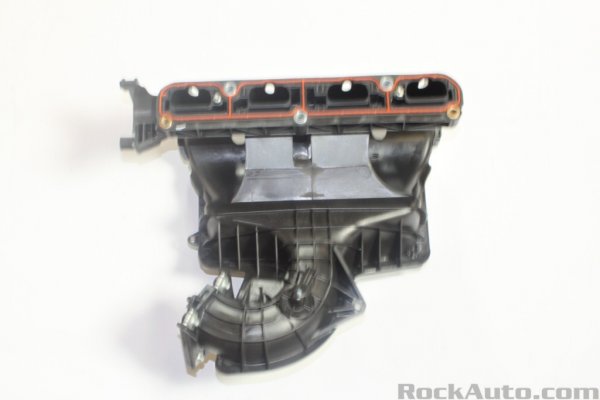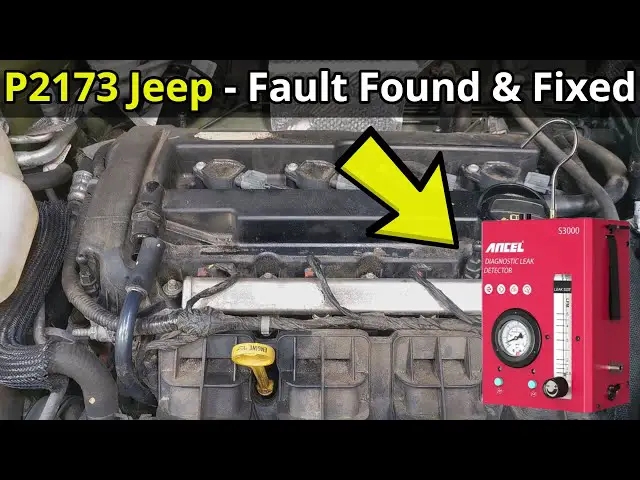The Jeep Compass is a popular SUV. It’s known for its durability and style. But like all cars, it can have problems. One common issue is the P2173 code. This code can cause concern for Jeep Compass owners.

Credit: www.dodgejourneyforum.com
What is the P2173 Code?
The P2173 code is an engine trouble code. It refers to a problem with the throttle control system. The throttle controls the air entering the engine. This code means there is too much air. This can cause the engine to run poorly.
Symptoms Of The P2173 Code
There are several symptoms of the P2173 code. These can help you identify the problem. Here are some common symptoms:
- Check Engine Light is on
- Engine runs rough
- Car stalls or hesitates
- Poor fuel economy
Causes of the P2173 Code
The P2173 code can be caused by several issues. Here are the most common causes:
- Vacuum leaks
- Faulty throttle body
- Dirty air filter
- Faulty sensors
- Wiring issues
Vacuum Leaks
Vacuum leaks are a common cause. These leaks allow extra air into the engine. This can trigger the P2173 code.
Faulty Throttle Body
The throttle body can become faulty. This can cause too much air to enter the engine. The result is the P2173 code.
Dirty Air Filter
A dirty air filter can restrict airflow. This can cause the engine to overcompensate. The result is the P2173 code.
Faulty Sensors
Several sensors monitor the throttle system. If these sensors fail, they can trigger the P2173 code.
Wiring Issues
Wiring problems can also cause this code. Damaged or loose wires can affect the throttle control system.
How to Fix the P2173 Code
Fixing the P2173 code involves several steps. Here is a guide to help you:
1. Check For Vacuum Leaks
Start by checking for vacuum leaks. Listen for hissing sounds around the engine. Use a smoke machine if you have one. Repair any leaks you find.
2. Inspect The Throttle Body
Next, inspect the throttle body. Look for signs of wear or damage. Clean the throttle body if it’s dirty. Replace it if it’s faulty.
3. Replace The Air Filter
Check the air filter. Replace it if it’s dirty. This is a simple and cheap fix.
4. Test The Sensors
Test the sensors related to the throttle system. Replace any that are faulty. This may require a professional mechanic.
5. Check The Wiring
Finally, check the wiring. Look for damaged or loose wires. Repair or replace any issues you find.
Preventing the P2173 Code
Prevention is always better than cure. Here are some tips to prevent the P2173 code:
- Regularly check for vacuum leaks
- Keep the throttle body clean
- Replace the air filter regularly
- Monitor the sensors
- Inspect the wiring

Credit: m.youtube.com
Frequently Asked Questions
What Does P2173 Code Mean On A Jeep Compass?
P2173 code indicates a problem with the throttle actuator control system in your Jeep Compass.
How To Fix P2173 On Jeep Compass?
To fix P2173, clean the throttle body, check for vacuum leaks, or replace the throttle actuator.
Is P2173 Code Serious?
Yes, P2173 can affect engine performance and fuel efficiency. Immediate attention is recommended to avoid further damage.
Can I Drive With A P2173 Code?
Driving with a P2173 code is not advisable. It can lead to engine performance issues and increased fuel consumption.
Conclusion
The P2173 code can be a headache for Jeep Compass owners. But with the right knowledge, you can fix it. Check for vacuum leaks, inspect the throttle body, replace the air filter, test the sensors, and check the wiring. By following these steps, you can keep your Jeep Compass running smoothly.
FAQs
What Does The P2173 Code Mean?
The P2173 code means there is too much air entering the engine. This is a problem with the throttle control system.
What Are The Symptoms Of The P2173 Code?
Symptoms include a check engine light, rough running engine, stalling, and poor fuel economy.
How Can I Fix The P2173 Code?
Fixing the P2173 code involves checking for vacuum leaks, inspecting the throttle body, replacing the air filter, testing the sensors, and checking the wiring.
How Can I Prevent The P2173 Code?
Prevent the P2173 code by regularly checking for vacuum leaks, keeping the throttle body clean, replacing the air filter, monitoring the sensors, and inspecting the wiring.


Leave a Reply